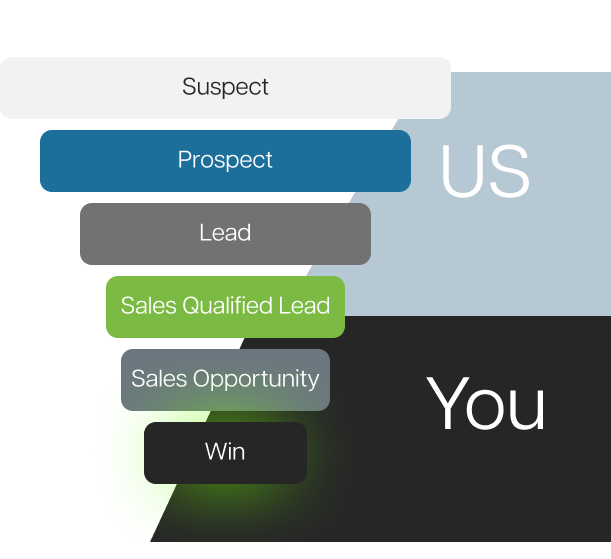In the rapidly evolving world of B2B marketing, businesses are constantly searching for new ways to generate high-quality leads and nurture them effectively. Traditional lead generation techniques such as cold emailing, SEO, and paid ads often struggle to meet the demands of today’s competitive marketplace. With the increasing role of artificial intelligence (AI), especially deep learning, businesses now have a powerful tool to enhance their lead generation efforts and deliver highly personalized outreach at scale.
The Challenge: Generic Outreach and Engagement
One of the primary challenges in B2B lead generation solutions is crafting content that resonates with potential clients. In the past, lead generation often relied on one-size-fits-all content that was blasted to large lists of leads. However, as companies become more inundated with marketing messages, this approach is no longer enough to stand out. Prospects, particularly in the B2B space, are bombarded with generic outreach that fails to speak to their specific needs or pain points. This lack of personalization results in lower engagement, reduced conversion rates, and ultimately, missed opportunities.
Enter Deep Learning: Transforming Content Creation
Deep learning, a subset of AI, is revolutionizing the way businesses approach lead generation. Unlike traditional AI tools, which often rely on predefined rules or simple algorithms, deep learning uses neural networks to process vast amounts of data, learn patterns, and make decisions with minimal human intervention. This capability makes deep learning ideal for creating personalized, high-quality content that speaks directly to the needs and interests of individual prospects.
How Deep Learning Enhances Personalization
- Advanced Content Generation: Deep learning models, such as GPT (Generative Pre-trained Transformer), are capable of generating human-like text that is not only coherent but also contextually relevant. These models can analyze the behavior and preferences of leads to craft highly targeted content. For example, if a prospect has recently shown interest in a specific product or service, deep learning can generate a personalized message that directly addresses their inquiry, highlights the benefits of the product, and offers a tailored solution.
- Behavioral Analysis: By leveraging deep learning algorithms, businesses can analyze a lead’s online behavior—such as website visits, email opens, and content interactions—to predict their needs and interests. Deep learning can then automatically adjust the content being sent to the lead based on these behaviors, ensuring that each touchpoint is relevant and timely. This predictive approach not only saves time but also increases the chances of conversion by delivering exactly what the lead is looking for.
- Dynamic Email Campaigns: Traditional email marketing campaigns often rely on segmentation, where a single template is sent to a group of leads with similar characteristics. However, with deep learning, businesses can take personalization to the next level. AI can analyze individual lead data in real time and create personalized email messages for each recipient based on their unique behaviors, industry trends, and engagement history. This allows companies to run dynamic email campaigns that adapt to each prospect, leading to higher open rates and more meaningful engagements.
- Optimizing Outreach Across Channels: Deep learning algorithms can also optimize outreach across multiple channels, including email, social media, chatbots, and even voice assistants. By continuously analyzing interactions and feedback, deep learning can refine the messaging and delivery method for each channel, ensuring a cohesive and personalized experience. For example, if a lead engages with a chatbot on the website but doesn’t convert, deep learning can trigger a follow-up email with content related to their inquiry, creating a seamless customer journey.
Overcoming Common Challenges with AI-Generated Content
While the potential benefits of AI and deep learning in B2B lead generation are clear, many businesses still face challenges in implementing these technologies effectively. One major hurdle is the quality of data. Deep learning models require large amounts of high-quality data to perform optimally. Without accurate and comprehensive lead information, the AI-generated content may miss the mark and fail to resonate with prospects.
Another challenge is the need for continuous training and refinement of AI models. Deep learning systems improve over time as they learn from new data, but they require ongoing monitoring and adjustments to ensure they continue to generate valuable and relevant content.
Finally, some businesses may be hesitant to fully embrace AI-driven solutions due to concerns about losing the human touch in their marketing. While AI can handle many aspects of content creation and personalization, it should be used to augment human creativity, not replace it. The most effective B2B lead generation strategies will combine AI’s efficiency with human insight to create authentic, engaging interactions.
The Future of B2B Lead Generation with AI
As AI technology continues to advance, the possibilities for B2B lead generation will only expand. Deep learning will enable even more precise targeting, hyper-personalized content, and smarter automation across all stages of the sales funnel. This will empower B2B marketers to deliver content that is not only timely and relevant but also anticipates the needs of their leads before they even express them.
In the near future, we can expect AI to play an even larger role in predictive lead scoring, automating follow-ups, and identifying high-potential leads with incredible accuracy. By harnessing the power of deep learning, businesses will be able to build stronger relationships with their prospects, drive higher-quality leads, and ultimately achieve greater success in their lead generation efforts.
Conclusion
The age of AI-generated content is here, and businesses that adopt deep learning for B2B lead generation will have a competitive edge in reaching and engaging prospects more effectively than ever before. By delivering hyper-personalized outreach that speaks to the unique needs and interests of each lead, companies can build stronger relationships and increase their chances of conversion. However, to unlock the full potential of AI, businesses must invest in quality data, continuous model refinement, and a human-centered approach to marketing. The future of B2B lead generation is intelligent, personalized, and driven by deep learning—those who embrace this new era will be poised for success.


